Paradise for Three

Brief Synopsis
Cast & Crew
Edward Buzzell
Frank Morgan
Robert Young
Mary Astor
Edna May Oliver
Florence Rice
Film Details
Technical Specs

Synopsis
When the Tobler Soap Company of Vienna sponsors a slogan contest, the first prize winner is unemployed Fritz Hagedorn, and the second place winner is Edward Schultz. Unknown to all, Schultz is really a pseudonym for Rudolph Tobler, the millionaire president of Tobler Industries. Because Tobler is tired of being bossed by his housekeeper, Mrs. Kunkel, and yearns to see how the common man lives, he decides to go incognito with his butler, Johann Kesselhut, to the Palace Hotel in the Alps, the site of the two week trip given as a prize. Meanwhile, Fritz, a perennial contest winner, decides that going there will enable him to make important contacts and possibly get a job. As Johann and Tobler journey to the hotel, Mrs. Kunkel telephones Mr. Bold, the manager, and informs him that an eccentric incognito millionaire will be staying there for whom she will send a draught to pay for "special treatment." Their conversation is cut off, however, before Bold learns the man's name. When Fritz arrives, Bold thinks that he is the millionaire and gives him the royal treatment. Tobler, however, who is traveling under the name Edward Schultz, is thought to be a nobody and is given the worst room in the hotel. Mrs. Irene Mallebre, a divorced fortune hunter, has heard the gossip about Fritz and tries to ingratiate herself to him. When they have a drink in his suite with Tobler, however, she observes Tobler's knowledge of fine brandy and realizes that he must be the real millionaire. She confirms her suspicion when she finds Tobler's picture in a book about industrialists. Several days later, Johann telegrams Mrs. Kunkel that Irene is pursuing the unsuspecting Tobler, and she and Tobler's daughter Hilde go to the Palace. When Fritz saves Hilde from a near accident on the ski slopes, the two begin a romance. She says that her last name is Schultz and claims to be Mrs. Kunkel's niece. After a costume ball, Fritz tells Hilde that they can't see each other after the holiday is over, as he doesn't fit in with the rich, but she then claims only to be a poor relation to Mrs. Kunkel. That same night, Tobler visits Irene in her room and discovers that she knows his identity. When Mr. Polter, the bell captain, is sent to Irene's room by Mrs. Kunkel, Irene claims shock and Tobler leaves. Later, when he turns the water off in the hotel, he is ordered out. Back in Vienna, Tobler has Fritz hired as his general advertising manager at a very high salary and sends Hilde to him. She cannot admit her deception, even when he proposes, but goes out with him that evening. The same day, Tobler summons Polter, Bold and Sepp, a kindly dishwasher, to his office and hires Sepp as the manager, leaving Bold and Polter's fates in his hands. When Sepp and Tobler learn that Irene has filed a breach of promise suit against Tobler, Sepp secretly sneaks into her hotel room and is discovered in the bed next to hers when the management comes looking for a fire that has been anonymously reported. Confronted by Sepp, Irene has to drop her suit. Finally, when Fritz accompanies Hilde home late at night, everyone is awakened and, after some grumbling when he learns the whole truth about the eccentric household, Fritz agrees that he and Hilde should get married.

Director
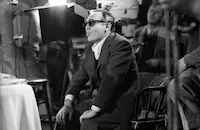
Edward Buzzell
Cast
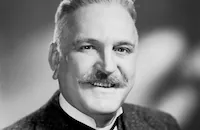
Frank Morgan

Robert Young

Mary Astor

Edna May Oliver
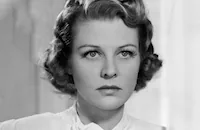
Florence Rice
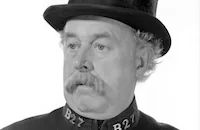
Reginald Owen

Henry Hull
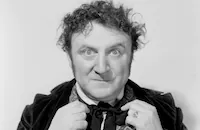
Herman Bing

Sig Rumann

Walter Kingsford
Jack Norton
Anna Q. Nilsson
Grace Goodall
Florence Wix
Hazel Laughton
George Ernest
Greta Meyer
Mariska Aldrich
Jean Fenwick
Robert Canterio
Rolfe Sedan
Guy D'ennery
Jacques Vanaire
George Sorel
Lilyan Irene
Max Lucke

Mary Howard
Gustav Von Seyffertitz
Edwin Maxwell
Maurice Cass
Wedgewood Nowell

Roger Moore
Billy Dooley
Max Barwyn
Clarence Badger Jr.
John Westervelt
Joseph Bjorndahl
Abe Dinovitch
Elsa Christian
Henry Sylvester
Louis Studer
Reinhardt Fraunfelder Sr.
Reinhardt Fraunfelder Jr.
Crew
Cedric Gibbons
John Hoffman
Millard Kaufman
Charles Lawton Jr.
George Oppenheimer
Stan Rogers
Harry Ruskin
Douglas Shearer
Leonard Smith
William Thiele
Dolly Tree
Gladys Unger
Elmo Veron
I. Von Cube
Edward Ward
Edwin B. Willis
Sam Zimbalist
Dolph Zimmer

Film Details
Technical Specs

Articles
Paradise for Three
A lightweight comic tale about deception and social conventions, Three Men in the Snow follows the confusion that erupts when a millionaire decides to pose as a poor servant during a snowy vacation in the Alps, with his servant pretending to be rich instead and a potential suitor for his daughter becomes entangled in the deception.
Obviously this plot was ripe for the Hollywood treatment, which specialized in glossy screwball comedies involving misidentification and romantic confusion. The book wasn't even published in English until 1938, but as early as 1936, MGM was interested in the project with numerous treatments written in German and English by writers including Gladys Unger, Irma von Cube, Peter Olman, William Slavens McNutt, Richard Schayer, and even Dalton Trumbo. By March of 1937, Trumbo and Harry Ruskin had a complete screenplay turned in, but another polish was needed with George Oppenheimer going through another draft in August. Ultimately Oppenheimer and Ruskin received credit for the finished product, which throws a few extra complications into the plot and bears the more alluring, American-friendly title of Paradise for Three.
Tasked with directing the film was Edward Buzzell, a former Broadway musical performer and Vitaphone star who moved into directing at Columbia with films like Ann Carver's Profession (1933). He made the leap to MGM soon after, where his success with low budget but polished productions like this led to plum assignments like films for the Marx Brothers, including At the Circus (1939) and Go West (1940), and Esther Williams with Easy to Wed (1946) and Neptune's Daughter (1949).
Of course, the real fun for classic film fans is watching the combination of familiar stars at very different points in their careers. A veteran silent actor who had successfully made the move to talkies with his rich, boisterous voice, Frank Morgan had already excelled in films like The Great Ziegfeld (1936) and was an obvious choice to play the wealthy, duplicitous Rudolph Tobler. Of course, one year later he would find screen immortality as the title character in The Wizard of Oz (1939), and he would continue acting busily until his death one decade later.
A younger but equally seasoned performer is a name even more familiar to classic viewers, Mary Astor, who had just scored successes in Dodsworth (1936) and The Prisoner of Zenda (1937). She had already proven her skill with frothy comedy in the classic Easy to Love (1934), and she continued to hone her comedic craft in favorites like Midnight (1939) and The Palm Beach Story (1942) before transitioning into more matronly roles for the majority of her later career. Of course, her gift for dealing with shifting identities here also suited her well when she assumed her most famous role of all, the femme fatale Brigid O'Shaughnessy in the third and most famous version of The Maltese Falcon (1941). Also rounding out the cast are such colorful characters as Edna May Oliver, best known for quirky support in literary adaptations like Little Women (1933) and David Copperfield (1935), beautiful but short-lived starlet Florence Rice (who also appeared in At the Circus), durable screen Scrooge Reginald Owen, and character actor and Broadway veteran Henry Hull, who had just become Hollywood's first lycanthrope in Werewolf of London (1935).
However, the greatest draw here may be the opportunity to see an early leading role for actor Robert Young, cast as romantic lead Fritz Hagedorn. Young had gradually been working his way up the studio ladder since the turn of the decade, including a notable detour to England for Alfred Hitchcock's eccentric Secret Agent (1936), but it wasn't until the following decade that he would really come into his own with starring roles in The Enchanted Cottage (1945) and Crossfire (1947). Of course, his greatest fame still lay ahead on television when he became the star of two long-running series, Father Knows Best and Marcus Welby, M.D., as well as a familiar spokesman for Sanka Coffee.
Though fairly successful as far as comedy programmers go, Paradise for Three remains something of an unsung discovery for many film fans due to its relative scarcity on television and home video before its eventual DVD release. Interestingly, the source novel was revisited again in its native language for a German adaptation by Kurt Hoffmann in 1955, with a modernized and decidedly unfaithful third version arriving from krimi director Alfred Vohrer in 1974.
By Nathaniel Thompson

Paradise for Three
Quotes
Trivia
This may be the only movie in which Roger Moore appeared with his older brother, 'Young, Robert' .
Notes
The film's pre-release title was Three Men in the Snow. A news item in Hollywood Reporter on March 20, 1937 noted that Samuel Warshawsky had been assigned to write the screenplay for this film, however, he is not mentioned in later sources, and his contribution to the film has not been confirmed. Hollywood Reporter production charts list Charles Lawton, Jr. (called "Bud" Lawton) as the photographer, although the film and all reviews only list Leonard Smith. It is unclear whether Smith replaced Lawton or if both worked on the picture in different capacities. A news item in Hollywood Reporter in March 1937 noted that Fred Wilcox was returning to the studio from Austria with background footage shot for this picture. According to reviews, this was Mary Astor's first film for M-G-M, and her first as a contract player at the studio. It was also Edward Buzzell's first film for M-G-M. Roger Moore, who played the minor role of a telephone operator in the film, was star Robert Young's brother; although both worked extensively at M-G-M, this May have been the only film in which they appeared together.















